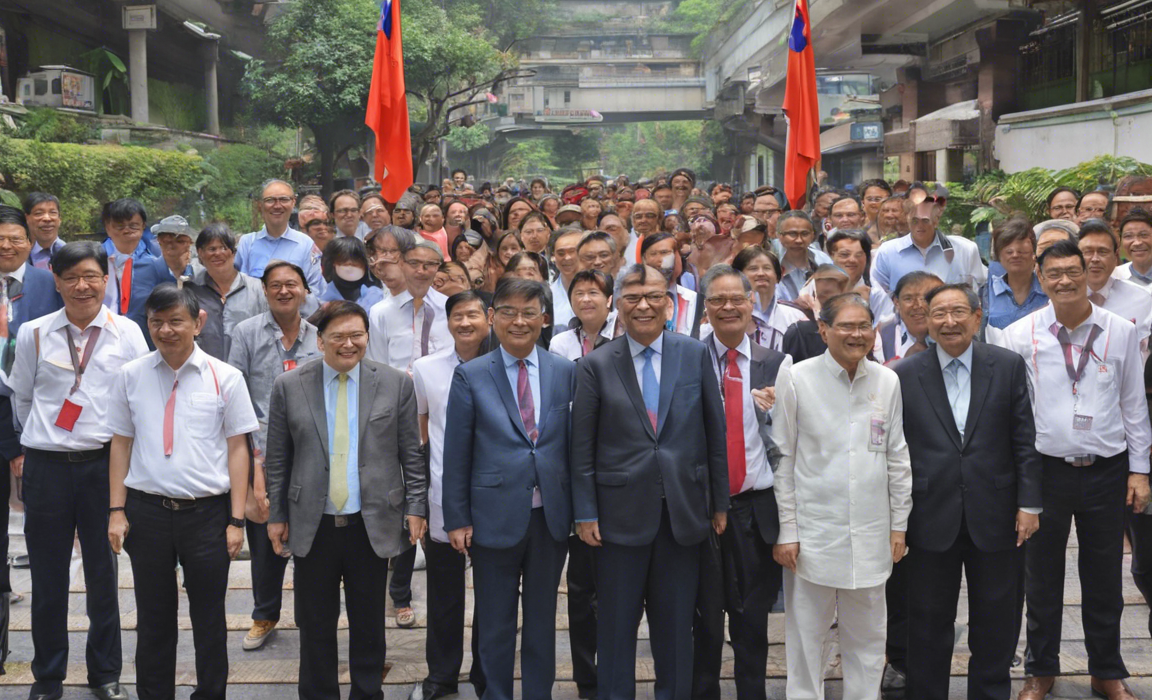Introduction
Taiwan-India Labour Cooperation: An Overview
India and Taiwan enjoy strong economic ties, with both countries being significant players in the global market. In recent years, there has been a growing interest in exploring labour cooperation between the two nations to further enhance their economic relationship. This article delves into the potential benefits, challenges, and future prospects of Taiwan-India labour cooperation.
Benefits of Taiwan-India Labour Cooperation
- Skill Enhancement: Taiwan is known for its advanced technology and skilled workforce, providing ample opportunities for Indian workers to enhance their skills and expertise.
- Knowledge Transfer: Collaboration with Taiwanese companies can facilitate the transfer of technology and knowledge, benefiting the Indian workforce in various sectors.
- Boost to Job Opportunities: Labour cooperation can create new job opportunities in both countries, leading to economic growth and development.
- Cultural Exchange: Exposure to different work cultures can promote understanding and collaboration between Taiwanese and Indian workers.
- Diversification of Industries: Cooperation in labour can lead to the diversification of industries in both nations, reducing dependency on traditional sectors.
Challenges in Taiwan-India Labour Cooperation
- Language Barriers: Differences in language can pose challenges in communication and coordination between Taiwanese and Indian workers.
- Legal and Regulatory Issues: Adhering to different labour laws and regulations in both countries can be complex and time-consuming.
- Cultural Differences: Varied cultural norms and practices may lead to misunderstandings and conflicts in the workplace.
- Work Visa Procedures: Obtaining work visas for Indian workers in Taiwan and vice versa can be a cumbersome process, hindering smooth cooperation.
- Skills Mismatch: Mismatch in the skills required by Taiwanese companies and the skills possessed by Indian workers can be a barrier to effective collaboration.
Future Prospects and Opportunities
- Joint Training Programs: Establishing joint training programs can bridge the gap in skills and enhance the employability of workers from both nations.
- Government Initiatives: Enhanced government initiatives and policies can streamline the process of labour cooperation and promote bilateral relations.
- Technology Exchange: Collaborating on research and development projects can facilitate technology exchange and innovation in various sectors.
- Workplace Diversity: Embracing workplace diversity through Taiwan-India labour cooperation can lead to creative solutions and enhanced productivity.
- Sector-Specific Partnerships: Focusing on sector-specific partnerships can maximize the benefits of labour cooperation in key industries such as technology, healthcare, and manufacturing.
FAQs (Frequently Asked Questions)
- How can Indian workers benefit from collaborating with Taiwanese companies?
-
Indian workers can benefit from skill enhancement, knowledge transfer, and increased job opportunities through collaboration with Taiwanese companies.
-
What are the main challenges in Taiwan-India labour cooperation?
-
Main challenges include language barriers, legal and regulatory issues, cultural differences, work visa procedures, and skills mismatch.
-
How can cultural exchange contribute to Taiwan-India labour cooperation?
-
Cultural exchange can promote understanding and collaboration between Taiwanese and Indian workers, enhancing the overall work environment.
-
What steps can governments take to promote labour cooperation between Taiwan and India?
-
Governments can implement joint training programs, streamline work visa procedures, and focus on sector-specific partnerships to promote labour cooperation.
-
Why is technology exchange important in Taiwan-India labour cooperation?
- Technology exchange can facilitate innovation, improve productivity, and enhance competitiveness in key industries, benefiting both countries.
In conclusion, Taiwan-India labour cooperation holds significant potential for mutual growth and development. By addressing challenges, leveraging opportunities, and fostering collaboration, both nations can enhance their economic partnership and create a conducive environment for skilled workers to thrive.

